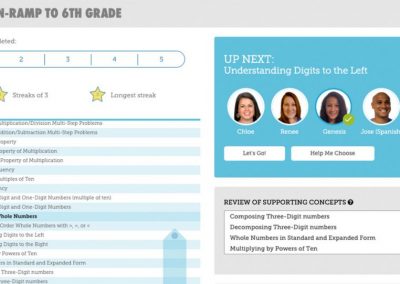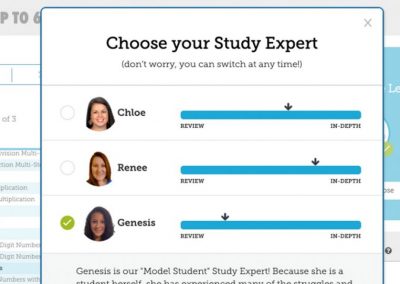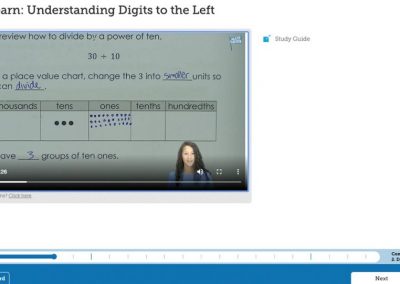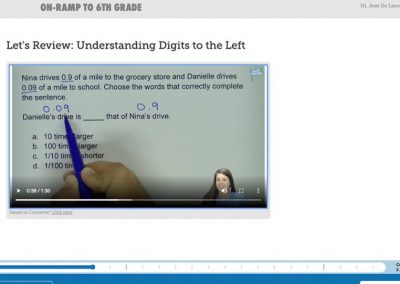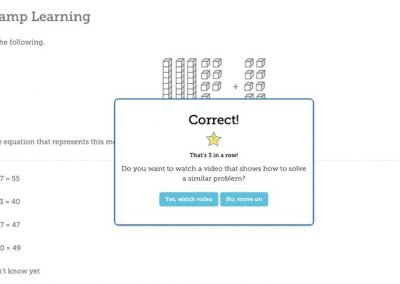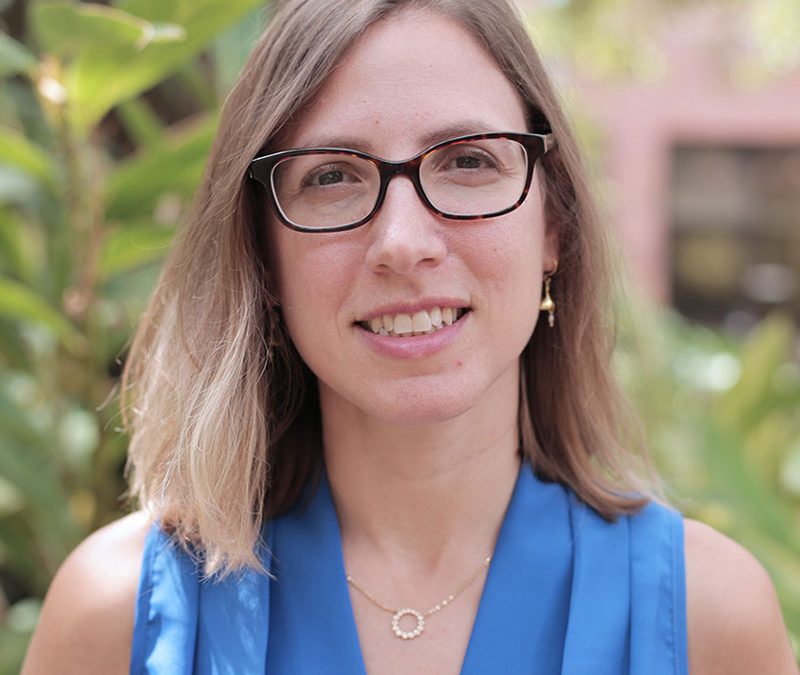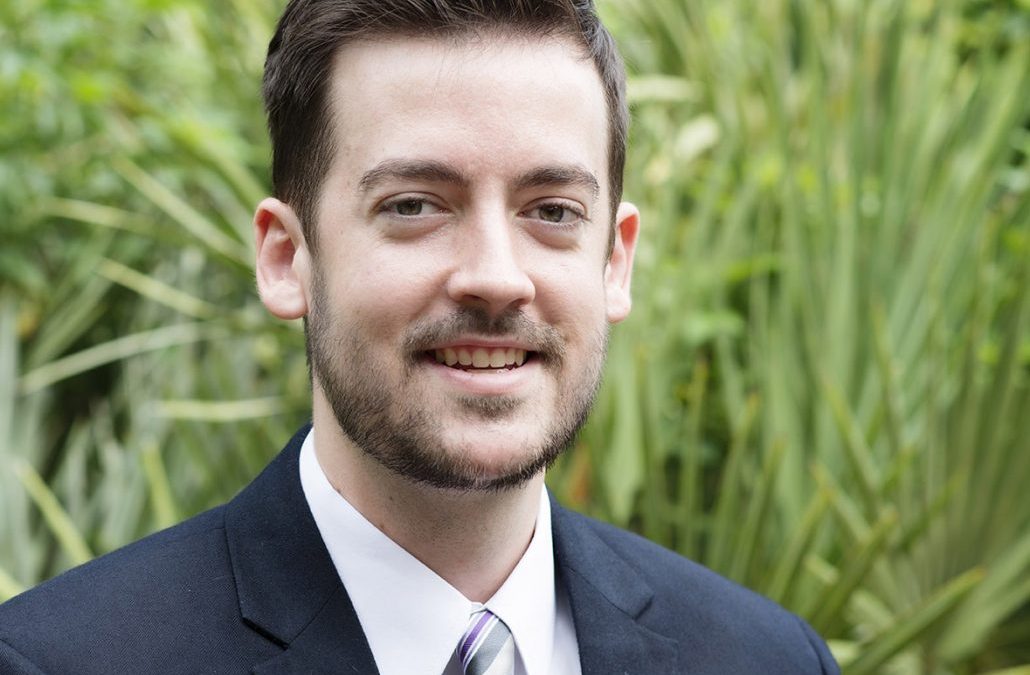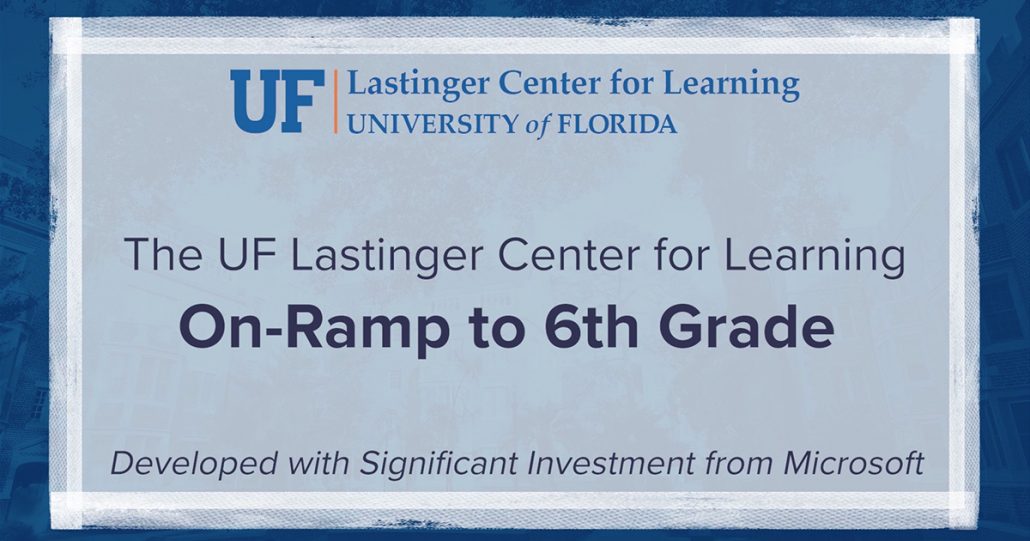
Microsoft Support for Mathematics Innovation
It’s not every day that a UF center has the opportunity to share its work at a Fortune 500 company’s all-staff meeting — but that’s what happened after the University of Florida Lastinger Center for Learning recently announced the first round of data for its new, adaptive learning tool that prepares students for the challenges of middle grades mathematics.
For nearly two decades, the Lastinger Center has been on the leading edge of educational innovations. Its members have consistently worked to maintain a connection to existing needs for a variety of educators and learners alike, and to forecast educational trends. Long ahead of the spring of 2020, center researchers had identified an increased demand for quality online educational tools, which were accentuated by responses the coronavirus.
Since August, more than 40,000 questions have been completed within the new tool. Earlier this year, Microsoft U.S. provided nearly $1 million to develop the On-Ramp to 6th Grade tool, including its adaptive diagnostic and instructional pathway to ensure that students have anytime access to tailored, research-based instructional support.
“Education must evolve to meet the unique needs of 21-century students,” said Philip E. Poekert, Ph.D., center director. “COVID-19 revealed the need for innovation to better serve all students. This investment from Microsoft U.S. ensures these students will approach 6th grade with confidence and well-prepared the rigor of middle school mathematics.”
The new On-Ramp to 6th Grade platform diagnoses, remediates and accelerates critical K-5 grade mathematics concepts and skills through its adaptive diagnostic assessment. This information is used to create a personalized learning path for each student. Student data are provided to teachers in real time so that they can quickly identify topics on which to remediate at both the individual and classroom levels. Students are empowered to select instruction that fits their learning style, pace and language so there no barriers to access.
“When students receive the early, personalized support they need to succeed in middle school mathematics, the opportunities are endless,” said Kate Johnson, president of Microsoft U.S. “We’re incredibly encouraged to see so many students using the On-Ramp to 6th Grade platform to help build their math muscles at a time when access to high-quality digital learning tools has never been more important.”
Beyond The On-Ramp to 6th Grade, Poekert hopes “to live up to the inspirational challenge initiated by Allen and Delores when they founded the center… and the tremendous passion and dedication that our associates bring each day as they grow the center.” With a focus on the future and proven ability to leverage domain expertise the team at the Lastinger Center will continue working toward a world where every child and educator, regardless of circumstances, experiences high-quality learning every day.

